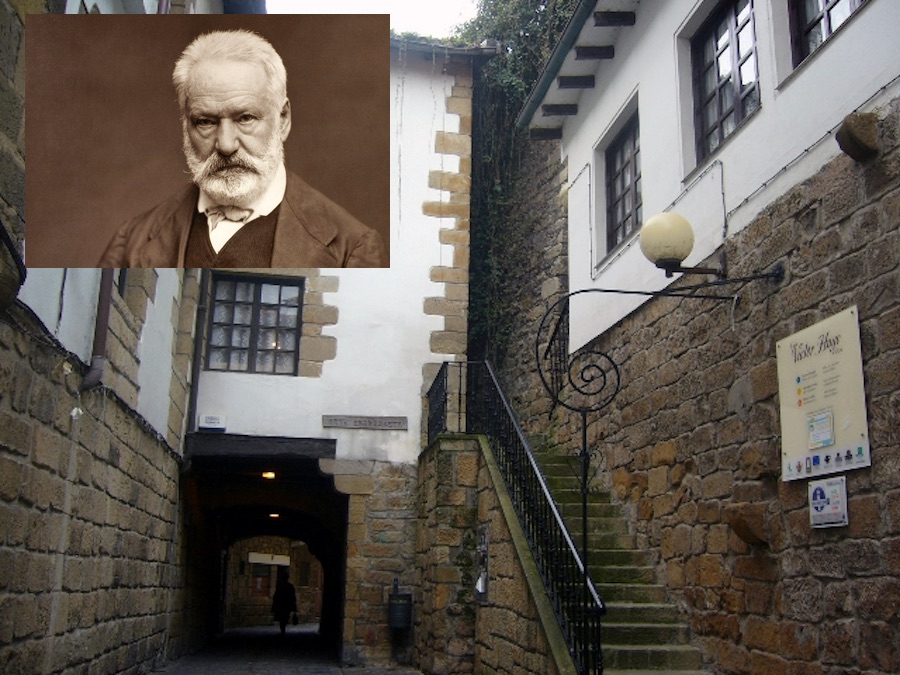Víctor Hugo, the man of letters, intellectual, and statesman) was an extraordinary man who lived in an extraordinary time. While firmly consistent in his beliefs, he was not immune to evolution, and over time, his ideas drifted from conservative to what would today be described as somewhere between European Christian democracy and social democracy. However, he was always a defender of the oppressed, and a ferocious enemy of capital punishment. He was always against the exploitation of the weak, meaning he fiercely defended the most disadvantaged social classes (which is to say, the vast majority of European society at the time), workers, and especially children.
It was he who came up with the idea of a United States of Europe, and with his speech at the International Peace Conference in Paris in 1849, he laid out the idea of a Europe that was united and at peace. Another century of uncountable wars (including two world wars) would be needed before Europe would start to take the first steps towards that idea Victor Hugo proposed.
Elena Aramendia, in a Facebook post, has shared a series of reflections Victor Hugo wrote about the Basques in one of his works. The writer knew the Basques well after visiting Bayonne for a month as a child in 1811, and Gipuzkoa in the summer of 1843.
What most surprised us about these reflections is his insight when it comes to describing the reasons why a traditional, but profoundly democratic, society allied with the Carlist absolutists. This incoherence the Basques seemed to have between who they were and what their chosen allies defended is explained quite simply and clearly. He refers to the disdain the Liberals showed for everything that did not fit in with their way of developing society and their vision of a uniform nation-state that coincided exactly with the lands held by the monarchy they sought to replace. On the other hand, the Carlists promised that everything would stay the same, including the Fueros, which guaranteed their freedoms.
His description of the inability of the transformative political movements of the 19th century to learn from the good that existed before the creation of the “Jacobin” revolutionary ideas they were based on is extraordinarily insightful. The liberal and social movements that developed in that century did not (want to) accept that anything good existed before they were born at the tables of philosophers, intellectuals, and university professors. These elite wanted to create a new world on paper, and didn’t know or appreciate the existing power structures that the people’s decisions had created, as is the case with the Basques.
You can find his quotes about our country in these three works: La legende des siecles, L’homme qui rit, and especially Alpes et Pyrénées.
”Here I am in the country where v is pronounced b. That was what delighted that old toper of a Scaliger. “Felices populi,” he cried, “quibus vivere est bibere”
“It is scarcely Spanish at all at San-Sebastiano; it is Basque. This is Guipzucoa, it is the ancient country of the fueros; these are the old free Vascongadas provinces. Spanish is spoken to a certain extent, to be sure, but everywhere they speak bascuence.”
Why then, according to Hugo, did the Basques largely embrace Carlism?
”At first thought, it would seem that such a people was admirably prepared to receive French novelties. Mistake. The ancient liberties fear the new liberty. The Basque nation has proved it satisfactorily. At the beginning of this century, the Cortes, which at every opportunity and often appropriately made translations from the Constituent Assembly, decreed Spanish unity. The Basque unity revolted against it. The Basque unity, taking its stand among its mountains, undertook the war of the North against the South. The day when the throne broke with the Cortes, royalty, tracked and panic-struck, took refuge in Guipuzcoa. The country of Rights, the nation of the fueros, cried, “¡Viva el Rey Neto!” — “Hurrah for the genuine king!”
Referring to the contradiction between the democracy of the Basques and their support of the absolutists:
”And under this apparent contradiction there was a profound logic and a true instinct. Revolutions—let us make this point emphatic—treat the ancient liberties no less rudely than did the ancient powers. They put everything on a new basis and rebuild everything on a grand scale; for they work for the future, and they take from the immediate present the measure of future Europe. Hence these immense generalisations, which are, so to speak, the frame-work for the nations of the future, and which accommodate themselves with such difficulty to old peoples, and which make such small account of old customs, old laws, old habits, old franchises, old frontiers, old idioms, old encroachments, the old ties between all things, old principles, old systems, old facts.”
”He who has seen the Basque country wishes to see it again. It is the blessed land.”
Our thanks to Elena Aramendia for allowing us to use her compilation of texts
Last Updated on Dec 20, 2020 by About Basque Country





